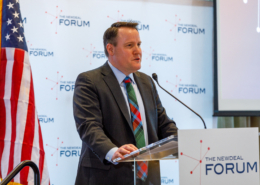Problem
People in working-class communities make the biggest investments of their lives when buying homes or starting small businesses. But most people's credit is limited, so expensive sustainable building practices are not an option, and their community misses out on a clean energy infrastructure. At the same time, federal and state officials have left it it up to counties, cities, and towns to address climate change in the aggregate. This community-based initiative removes barriers to sustainable building practices in emerging communities by leveraging federal regulations for bank loan portfolios, thereby leading to increased property values for residents, increased local tax revenues for municipalities, and a sustainable future for all.
Solution
Sustainable Communities brings together local government, a community bank or credit union, and a home or small-business owner to implement a sustainable infrastructure project (such as solar panels or geothermal heat). The individual benefits from government-backed credit at low interest rates, the bank meets federal regulations to maintain secure government-backed loans in its portfolio, and the community sees returns from the increased value of the sustainable project in property tax revenue. With the sustainable project in place, the property owner receives a return on their investment and decreased overhead from lower energy costs, and the entire community and region lower their use of fossil fuels.


 https://newdealleaders.org/wp-content/uploads/2025/05/Leaders.jpg
1440
2560
Rachel Walsh
http://newdealleaders.org/wp-content/uploads/2019/11/logo-tnd.png
Rachel Walsh2025-05-07 21:02:352025-05-09 21:04:35Annual NewDEAL Forum Ideas Summit in Atlanta
https://newdealleaders.org/wp-content/uploads/2025/05/Leaders.jpg
1440
2560
Rachel Walsh
http://newdealleaders.org/wp-content/uploads/2019/11/logo-tnd.png
Rachel Walsh2025-05-07 21:02:352025-05-09 21:04:35Annual NewDEAL Forum Ideas Summit in Atlanta





